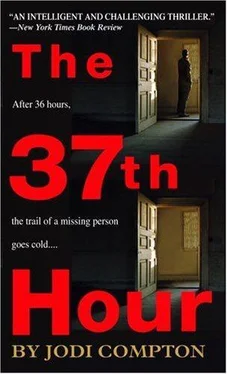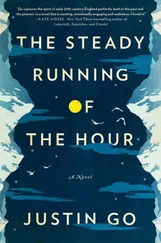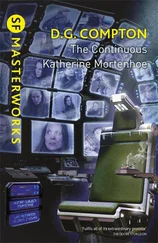For me, that outer layer was going to be our neighborhood, which I would walk once again. Looking, thinking, retracing the steps Shiloh might have taken. I sensed it was useless even as I took a hooded jacket off the peg in the front hallway and went out the door.
After Shiloh’s sixteen weeks of FBI training, when he’d received his first assignment to a field office, I was going to pack up and join him. It was nearly impossible that he’d be assigned back to Minneapolis. Shiloh had been almost apologetic when he’d told me this.
“Hey,” I’d said, half kidding, “I’m a lowly cop. Who am I to stand in the way of the important work you’ll be doing: catching fugitives, hunting down terrorists-”
“Pretending to be a thirteen-year-old girl on the Internet,” Shiloh had interjected. “I’m serious. New agents rarely get desirable assignments. It’s likely that we’re going to live in an economically depressed second city. You’ll be on a drug or gang task force somewhere, if the local cops are hiring at all.”
“I’ll find something,” I’d said.
“Life there is going to be a lot different than it is here,” he’d insisted. “And you’ve lived in Minnesota a long time.”
“Then it’s time I saw someplace else,” I’d said.
Shiloh had painted a dark, if vague, picture of the city we’d live in after he got his first assignment. But had it been this neighborhood, the one he’d called home for years, that had somehow turned on him? Shiloh had owned no car at the time of his disappearance; Mrs. Muzio had seen him out on foot during the time I’d been downstate. The evidence suggested that whatever had happened to Shiloh had happened here.
The course I was following had taken me across University Avenue, one of the main roads through Northeast. Now I paused and looked down a wide, paved back alley that ran behind a Laundromat and a liquor store. A girl rode past me on a pink bicycle with high handlebars and a banana seat, wobbling slightly as she stood in the pedals to get more speed out of her efforts, taking a shortcut home.
The alleyway, like everywhere else I’d walked, looked wide-open and safe in the light of day. I had difficulty seeing it-or anywhere nearby-as the scene of a violent crime, even at night. Ours was a neighborhood with streetlights and foot traffic. It never got truly dark, truly isolated.
But that was a fallacy a lot of civilians bought into. They believed that total seclusion and darkness were necessary for crimes to be committed. It wasn’t true. Smash-and-grab robberies, assaults, even murders, took place in semipublic places, with people not so far away.
A robbery gone wrong was perhaps the most likely scenario.
Had Shiloh been carrying a serious amount of money with him when he disappeared? It seemed unlikely, and it probably didn’t matter. Money was only a risk when people had reason to believe you had it on you. Shiloh didn’t dress like money, and he knew better than to let people see large bills when he had them. But people got jacked every day, rich or not.
What would Shiloh do then? I couldn’t honestly say. I could imagine a calm and practical Shiloh who’d hand over his money and appease a nervous teenager with a gun or a knife. But I could also imagine a contrary Shiloh who’d resist, the same one who’d refused for months to give up on his theory that Aileen Lennox was Annelise Eliot, the one who’d picked a fruitless argument with Darryl Hawkins.
Either way, he could have gotten killed for his efforts, his ID disappearing along with his money into a stranger’s bloody hands.
So where was the body? I could visualize the rest of it, but I couldn’t see a mugger disposing of the body. He’d just gotten away with robbery and murder. The worst thing he could do was stay with the body a moment longer than he had to. The smartest thing would be to run.
“ ‘Disappeared without a trace’ is a cliché,” Genevieve told me early in my training. “ ‘Nobody disappears without a trace’ is my anti-cliché. It’s the golden rule in Missing Persons.”
The one case that seemed to be proving Genevieve’s saying wrong was the one I was personally involved in. That in itself was suspicious. Maybe I was doing something wrong. Maybe I was too close to it. Was that what another cop would say? What Gen would say?
There were another seven hours left in my thirty-six-hour window, but it didn’t matter to me anymore. There was something I wanted to do, and I didn’t want to wait.
At five Wednesday evening I was at the Lowes’ farm again, outside Mankato.
I could have called Genevieve. Technology has changed a lot of things. You can’t turn on the TV anymore without a wireless company selling you the idea that you can trade stocks and give presentations from the top of a mountain in Tibet. Cops are among the few people who still understand the need for face-to-face communications. I’d strongly felt that this conversation with my partner wasn’t something I could do over the phone.
I needed Genevieve. She’d taught me. I had to believe she could help when I didn’t know what else to do. Eating up Highway 169 at 71 miles per hour, a borderline safe speed in case of patrol cars in the bushes, I’d rehearsed how I would explain things to her.
In the back of my mind was the idea that this would help Genevieve as much as me. She needed to be doing something other than hiding in a century-old farmhouse, grieving for her daughter. She was good at this work; surely it would help.
When Genevieve came to the door, she looked unsurprised, like I lived across town.
“Come in,” she said, and I followed her inside. But once inside, she didn’t seem to know what we should be doing.
“Where’s Deborah and Doug?” I asked.
“Doug will be home soon,” she said. “He sometimes stays at school to grade exams. Deb’s gone to Le Sueur. She coaches the girls’ basketball team and they’ve got an away game.”
When she stopped speaking, Genevieve simply stood and waited for me to take the lead again.
“I need to talk to you,” I said.
“All right.”
I glanced to the side, into the living room. It seemed like the place Genevieve would take a guest who’d come to talk, if she had been thinking like a host. It seemed she wasn’t.
“Do you want to make some coffee or something?” I said, awkwardly taking her role.
We went into the kitchen, Genevieve trailing me. When I started looking for coffee and filters, she took the initiative of reaching up to a cabinet over the refrigerator and bringing down what I needed. The sleeves of her T-shirt fell away, revealing the smooth muscles of triceps and deltoids. She hadn’t lost all her work in the gym, not yet.
I took the cream from the refrigerator. There were eggs in the door of the refrigerator, smooth and brown, and I remembered the Lowes’ henhouse outside.
“The eggs are from the chickens outside, aren’t they?” I said.
“Yes,” she said.
“They must really be fresh, they must-” For God’s sake, Sarah, this is not a social call. I turned to make eye contact with Genevieve. “Shiloh’s disappeared,” I said.
Her eyes were on me, a sober brown gaze. Yet she said nothing.
“Did you hear what I said?” I asked her.
“Yes.” Her voice was flat. “I don’t understand.”
We never got back to the living room. I told her the whole story in the kitchen, first as the coffee brewed, then as we drank it. She sat down at the kitchen table. I remained standing, restless from the drive.
As little as I knew about how and why Shiloh had gone missing, it took a long time to tell. I wanted to make clear to her that I’d pursued all the angles I knew, that every one had been a dead end. She had to understand that this was serious.
Читать дальше












